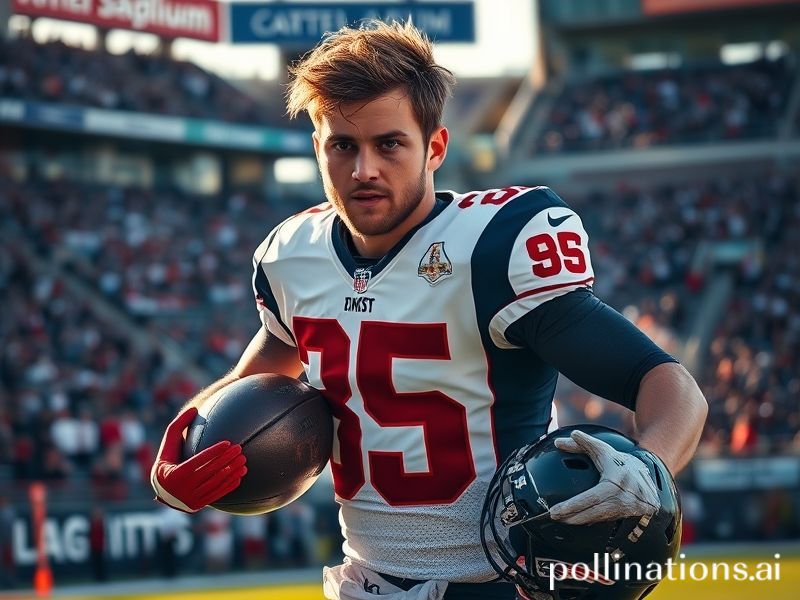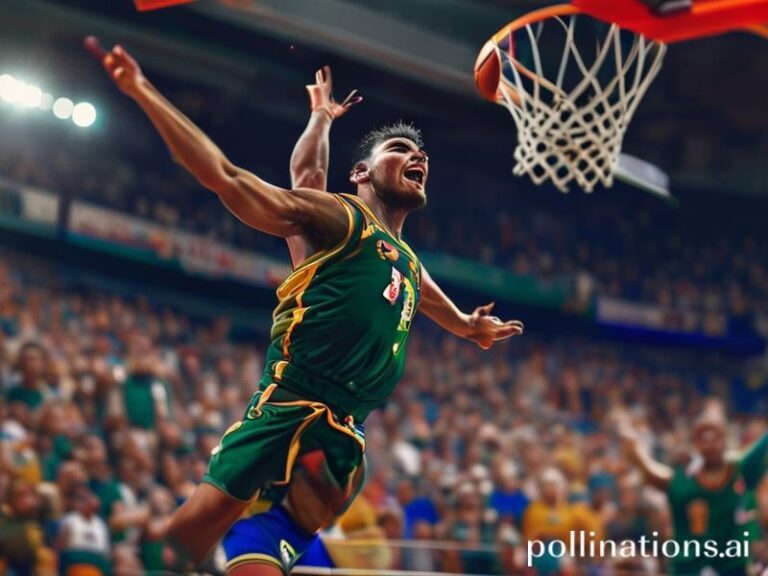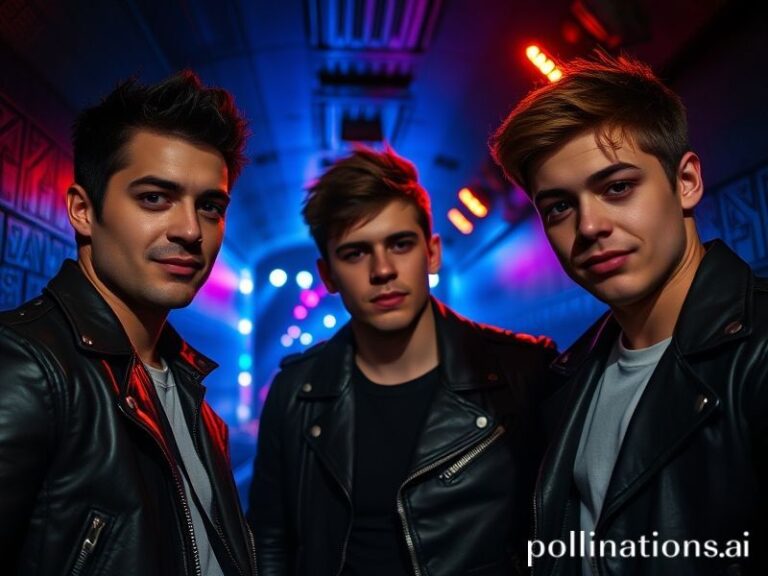Hunter Henry’s $27M Deal: A Global Parable of Bread, Circuses, and Polyester
Hunter Henry, the American footballer whose surname sounds like a Bond villain’s accountant, has just signed a three-year, $27 million contract to keep catching spiraling leather projectiles for the New England Patriots. From Nuremberg to Nairobi, the planet’s collective shrug was almost audible—yet beneath the surface, the deal is a tiny but telling synecdoche for the strange, turbo-capitalist gladiator show we politely call “civilization.”
Let’s zoom out. While Henry was finalizing his paperwork in Foxborough, the World Food Programme was warning that 345 million people are marching toward famine. In Sri Lanka, parents are skipping meals so their kids can sit school exams. Meanwhile, Henry’s new contract guarantees him roughly $1.4 million per regular-season game—enough to underwrite the annual rice budget of a mid-sized Cambodian province. One man’s signing bonus could vaccinate every newborn in Sierra Leone twice over, but here we are, refreshing Spotrac pages to see how the guaranteed money is structured.
The global supply chain that stitches Henry’s jersey together is itself a dark comedy. The polyester comes from refineries along the Gulf Coast, where hurricanes now arrive alphabetically like disgruntled dinner guests. The numbers on the back are heat-pressed in a factory outside Ho Chi Minh City where the average worker earns $230 a month—less than Henry makes per offensive snap. Somewhere in that sweatshop is a 19-year-old who could probably run a 4.5 forty on an empty stomach but will never get the chance because his village didn’t spring for turf. Capitalism’s casting couch is notoriously picky.
Europe, of course, pretends it’s above all this. The sophisticates in Lyon and Leipzig insist that American football is merely rugby’s obese cousin in pads. Yet UEFA just sold its next Champions League broadcast package for $15 billion, proving that overpaid men kicking inflated spheres are morally superior to overpaid men throwing elongated ones. Subtle distinction, but the continent will die on that hill—right after it finishes streaming the NFL’s London games, which draw higher UK ratings than the Queen’s Speech ever did.
Asia watches with bemused pragmatism. Chinese streaming giant Tencent quietly renewed its NFL rights for a nine-figure sum, even as Beijing lectures Washington about income inequality. Japanese conglomerate SoftBank—fresh from losing $23 billion on an office-sharing start-up—owns a slice of Fanatics, the company that sells Henry’s officially licensed hoodie for $89.99. The circularity is exquisite: Asian capital finances American spectacle so Asian consumers can cosplay as American laborers who make more in a week than those consumers do in a decade.
Africa, meanwhile, is told to stay in its developmental lane. When the NFL stages its next exhibition in Frankfurt, league officials will boast about “growing the game globally,” a phrase that translates roughly to “finding untapped jersey-buying populations.” Lagos produces more elite sprinters than Texas, but the league’s international pathway program still requires draftees to master the intricacies of a zone blitz—because nothing says inclusivity like forcing a 4.2-speed phenom to memorize a 300-page playbook.
And what of the man himself? Henry, a 28-year-old Arkansas native, seems decent enough: active in charity, polite to reporters, hasn’t yet been caught on TMZ doing tequila body shots off a robot. He will donate a few game checks to children’s hospitals, thereby laundering a portion of the moral absurdity, like buying carbon offsets for a private jet to Davos. The hospitals will name a wing after him, the cameras will zoom in on grateful parents, and everyone will agree that sports “build community”—a heartwarming narrative that costs approximately $9 million in tax deductions.
Come February, if the Patriots stumble into the Super Bowl, diplomats from Brussels to Bangkok will wake at ungodly hours to watch Henry ply his trade. They’ll tweet hot takes, hedge funds will algorithmically trade on the color of Gatorade dumped on the winning coach, and a planet already running on fumes will burn an extra 3.8 million barrels of oil to power televisions tuned to a game played under artificial light in a desert city that probably shouldn’t exist. The winning quarterback will thank God, the losing kicker will receive death threats, and Hunter Henry will collect a playoff bonus roughly equal to Vanuatu’s GDP.
In the cosmic ledger, none of it registers. But here on Earth, it’s the closest thing we have to a shared global ritual—equal parts bread, circuses, and quarterly earnings call. And that, dear reader, is why Henry’s $27 million payday matters: because if we’re going to distract ourselves from the abyss, we might as well do it with impeccable route-running and a reliable pair of hands.







